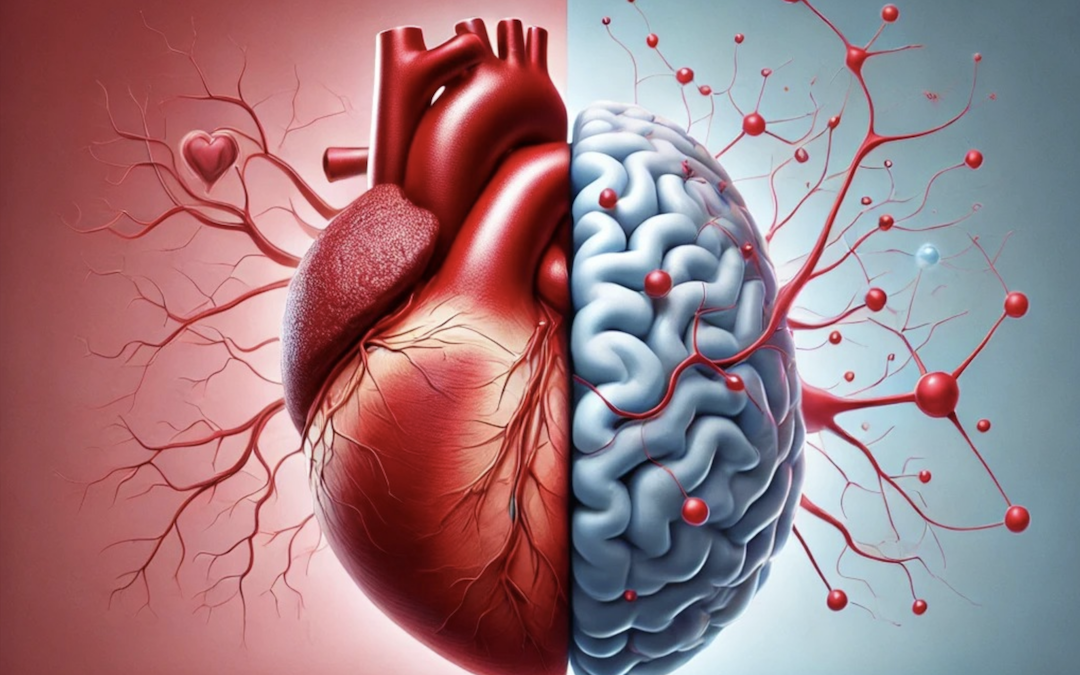Researchers have found that having a strong heart can promote better ageing, with Aussies being encouraged to learn more about the importance of cardiovascular fitness.
This coming February is REDFEB, Heart Research Australia’s heart awareness month. It promotes a greater awareness of heart disease, and asks all Australians to donate to vital research programs.
The Australian Institute of Health and Welfare reveals that heart disease is the biggest cause of death in Australia, affecting more than 4 million Aussies. While most of us are at risk of developing heart disease, few realise that maintaining a healthy heart protects the brain, memory and cognitive function. This heart awareness month, like every month, it’s important to realise that it’s not just your heart on the line, but your brain and overall wellbeing too.

The impact of heart disease
According to Heart Research Australia, around 54,000 Australians suffer a heart attack each year. That equates to around one person every ten minutes.
A heart attack is the result of an artery becoming blocked, stopping oxygen from reaching the muscle. It can lead to chest pains, nausea, a squeezing or choking sensation, sweating, pain in the shoulder and arms, and more. In the event of a heart attack, it’s vital to dial triple zero (000) and ask for an ambulance.
Sadly, heart disease is a common problem killing one Australian every 30 minutes, according to the Australian Bureau of Statistics. 35 percent of the cause of cardiovascular disease is high blood pressure, which affects 1 in 3 people over the age of 18.
Heart health is vital as it is the centre of the cardiovascular system, which pumps blood and oxygen around your body. The Heart Foundation recommends regular physical activity, healthy eating and periodic check-ups as important ways to support your heart.

Heart and brain health are more connected than you may think.
The connection between the brain and the heart
“Heart health and brain health are intimately connected,” explains Clinical Neuropsychologist Dr Miranda Say. “The brain relies on a steady supply of blood from the heart. Conditions like high blood pressure, high cholesterol can disrupt blood flow, increasing the risk of stroke and cognitive decline, including dementia.”
For example, over 421,000 Aussies are currently living with dementia. In the case of vascular dementia, direct ties have been found to brain health and cardiovascular health. Heart Research Australia wants to encourage all Australians to prioritise their heart health this REDFEB, with a few simple lifestyle changes to make all the difference.
Nicci Dent, CEO of Heart Research Australia, says now is the time to start making active changes. “Prioritising heart health isn’t just about preventing heart attacks – it’s also about safeguarding your brain health and reducing your future risk of cognitive decline, including dementia. The message is simple, what’s good for your heart health is also good for your brain health.”

Regular exercise and a good diet can lead to a healthy heart.
The 4-M approach
Heart Research Australia has developed four easy steps that everyone can take to improve both their heart and brain health.
- Meals – high cholesterol can block arteries to the heart, increasing the risk of heart disease and impairing blood flow to the brain. A simple and fresh diet that reduces processed food intake can support better health.
- Movement – functional strength training and aerobic exercise such as walking can lower blood pressure, increase cholesterol and improve neuroplasticity, which is the brain’s ability to create new connections.
- Measurement – regular health check-ups are vital for monitoring blood pressure, cholesterol and blood sugar. By “knowing your numbers” you can protect cognitive functions and prevent cardiovascular disease.
- Mental wellness – high blood pressure and high cholesterol can significantly impact your heart and brain, but often go unchecked. Incorporating regular mindfulness activities can help to reset your thinking and support cognitive health.
This REDFEB, Heart Research Australia asks everyone to wear red to support those impacted by heart disease. Fundraisers and donations can help to support life-changing research.
According to Nicci Dent, “By supporting REDFEB, you’re not only helping to fund vital research, but also empowering yourself and your loved ones to live healthier, longer more active lives.”
To learn more about REDFEB, visit the website here.
For more information on the importance of wellbeing, check out this article on how social health can reduce the risk of dementia.

